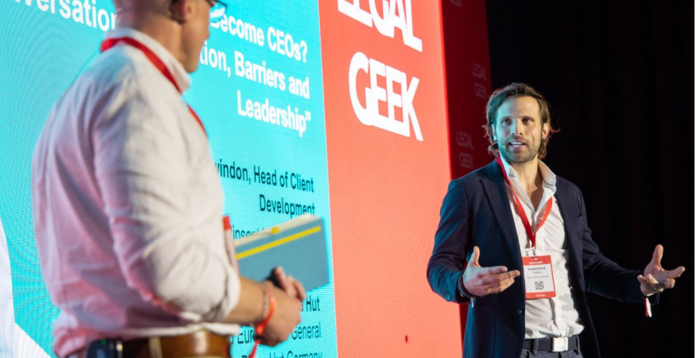Top 5 Skills Of A Legal Project Manager
I started life as a Lawyer and did 22 years before I changed careers to Project Management in 2017. The lawyer skill set was highly transferable into Project Management. After 3 years managing technical pilots for new generation smart meter technology, I came back in to the legal environment. Here are the key skills of a Legal Project Manager:
1. Organisation
The first thing to understand about being a Project Manager of any sort is that you need to be organised. You always need to be ahead of your team, so emails need to be read, actions taken from them and meetings planned to make the best use the of project calls which are expensive as you take most of your senior legal and client resource into them. Are you used to an inbox of 48,000 emails with 2,000 unread? Not as an LPM, every email read, every day, otherwise your projects would run away from you. Not easy given some projects will bombard you with emails and you will have several projects at any one time. I colour code my diary by project and at the end of every day I prepare my list of tasks for the next day.
2. Structure and method
Most of my colleagues in the LPM team are qualified within the Association of Project Managers scheme or PRINCE2, both of which are internationally recognised qualifications. We are therefore fully aware of the necessity and benefit of project methodology which teaches us about structure of projects and management of them. We are professionals, this is what we do!! There is a right way to manage a project although each project will be different. There are core steps to get from A to B successfully. Excellent governance, means regular calls, with agendas to ensure progress and actions are logged for progress and accountability. Routine calls and communications ensure your project team know exactly where you are in the project, what is required of them and you are able to drive a project forward to a conclusion. Waterfall, Agile, Lean are all methodologies that we utilise on projects.
3. Patience/Planning
A lot of time in the role of the Legal Project Manager is spent in planning out the project at the start to enable everyone to understand the workstreams and tasks required throughout a project. In a more traditional project there will be scoping to determine the work/tasks needed, implementation, governance, tracking progress, chairing team, client and supplier calls, identifying and recording risks, assumptions, issues and dependencies, reporting to the team or client, closing the project and recording lessons learned throughout.
Project plans take time to draft and verify. It requires input from many stakeholders, not all of whom will be engaged with the project management process. Sometimes you just have to make an educated guess of when things need to happen, but the benefit of this, is to ensure that projects do not just drift along. It allows us to track and report on progress. Projects frequently hit bumps in the road, patience and planning allows us to navigate those hurdles. Most of all, we focus on delivery which allows the legal team to focus on quality. These are absolute necessities and massively complementary on any project. A project manager will always be looking at the bigger picture and the end goal.
4. Stakeholder management skills and tenacity
Let’s be honest, there are not many shrinking violets in the legal and business world, there are a lot of strong minds, strong wills, and disagreements. If you put 20 lawyers in a room, you may end up with 20 differing opinions! So as an LPM you need to be a ‘people person’, you need to understand the point of view of your stakeholders and how best to engage with them. There’s no point in emailing someone who doesn’t reply to emails because they are back to back in meetings, you always have to find a route which works for them and drives the project forward.
Also, be prepared to be ignored, because you will be by some. Being tenacious is definitely a core skill, both in pushing your stakeholders to complete tasks (when they have lots of competing priorities) and standing up to strong personalities. You are on everyone’s side.
5. Sense of humour, energy and resilience
Being an LPM on a project isn’t always easy. Projects that run for a long time mean that your legal team members can start to flag. As a Legal Project Manager you need to drive forward with energy and enthusiasm. A great sense of humour isn’t essential, but sometimes this is a difficult job, and this will definitely help. Bringing your humanity to work was never more important than in this job and a cheery smile will go a long way.
Pinsent Masons’ purpose is to:
“Champion change, promote progress and enable everyone to make business work better for people.”
As a Legal Project Manager we live and breathe this mantra; we plan, we create efficiencies, we reduce cost and we make projects work better for our clients. We see the bigger picture that our clients want to achieve and we make it happen.
Latest blogs

From Legal Expert to Strategic Leader: Rebecca Rawson’s Journey Beyond Law
In this latest interview in our in-house legal series, we're joined by Rebecca Rawson, Senior Managing Counsel at MasterCard.

Breaking the Legal Mould: Richard Crabb on Moving from Law to Leadership
In this latest interview in our in-house legal series, we’re joined by Head of Legal and Commercial at NuBreed Hotels.

From Legal Counsel to Market Leader: How Lawrence Grabau Developed His Career
In this latest interview in our in-house legal series, we’re joined by Lawrence Grabau, General Manager, Pizza Hut Germany and former Chief Legal Officer for Pizza Hut UK & Europe